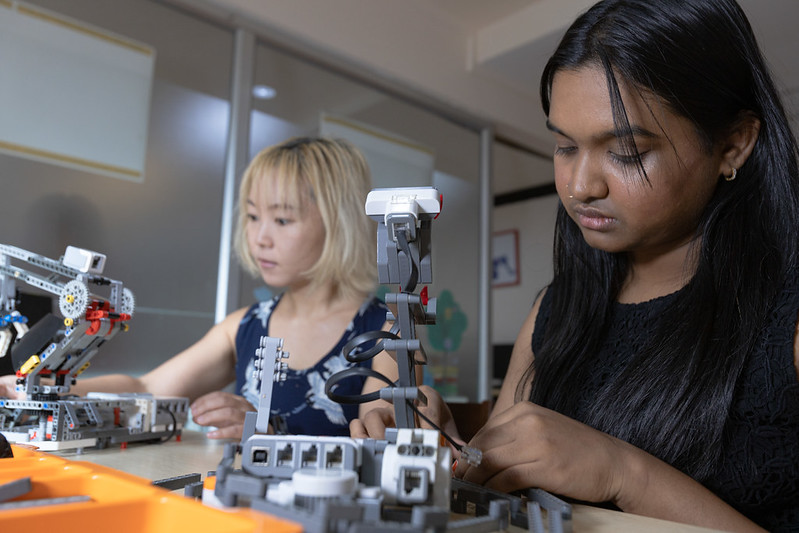
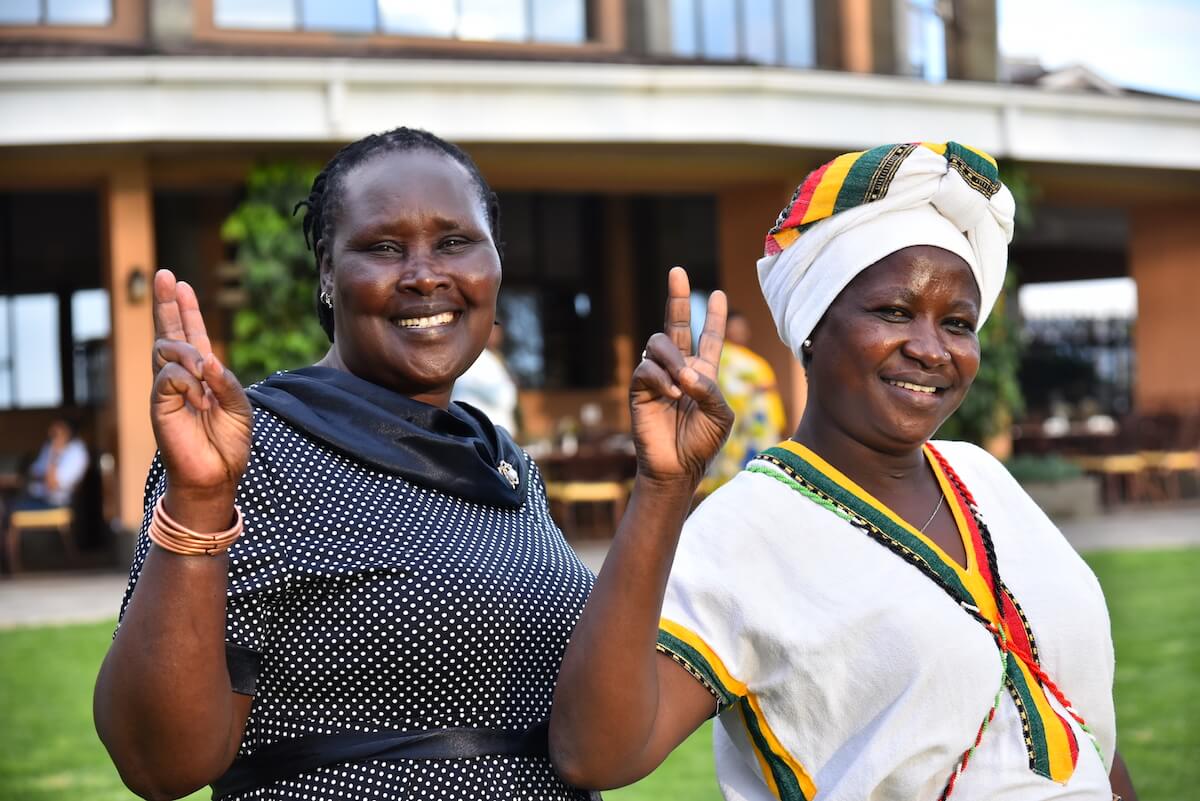
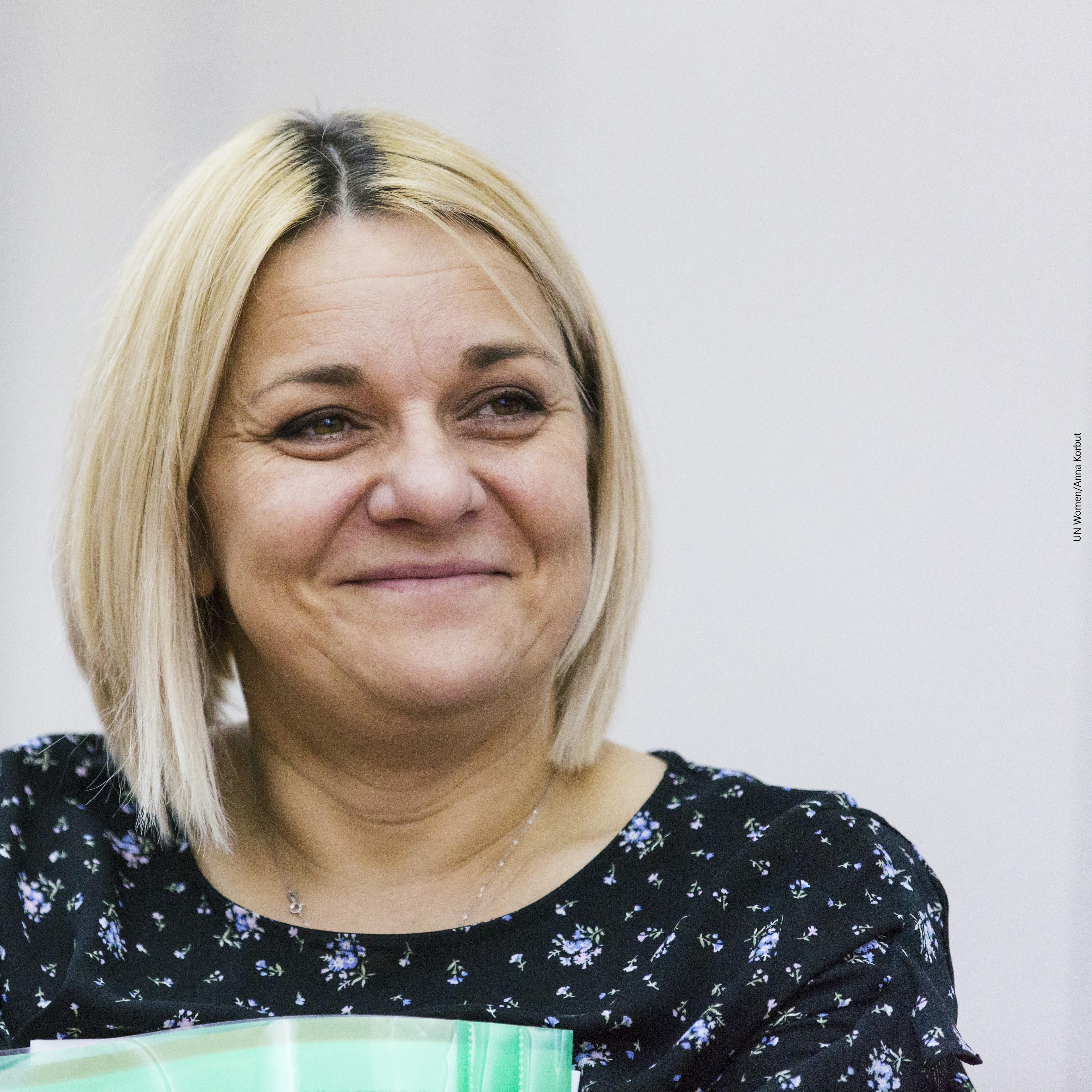
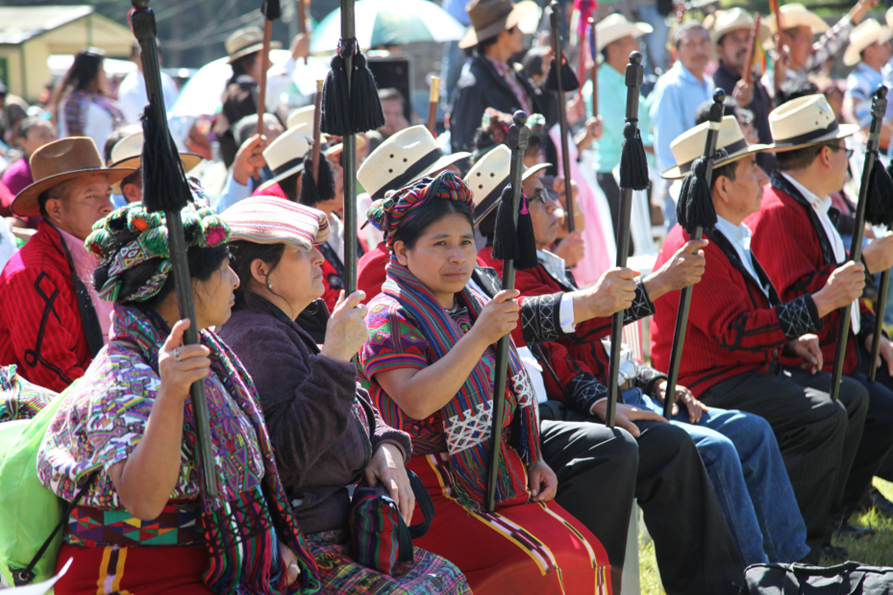
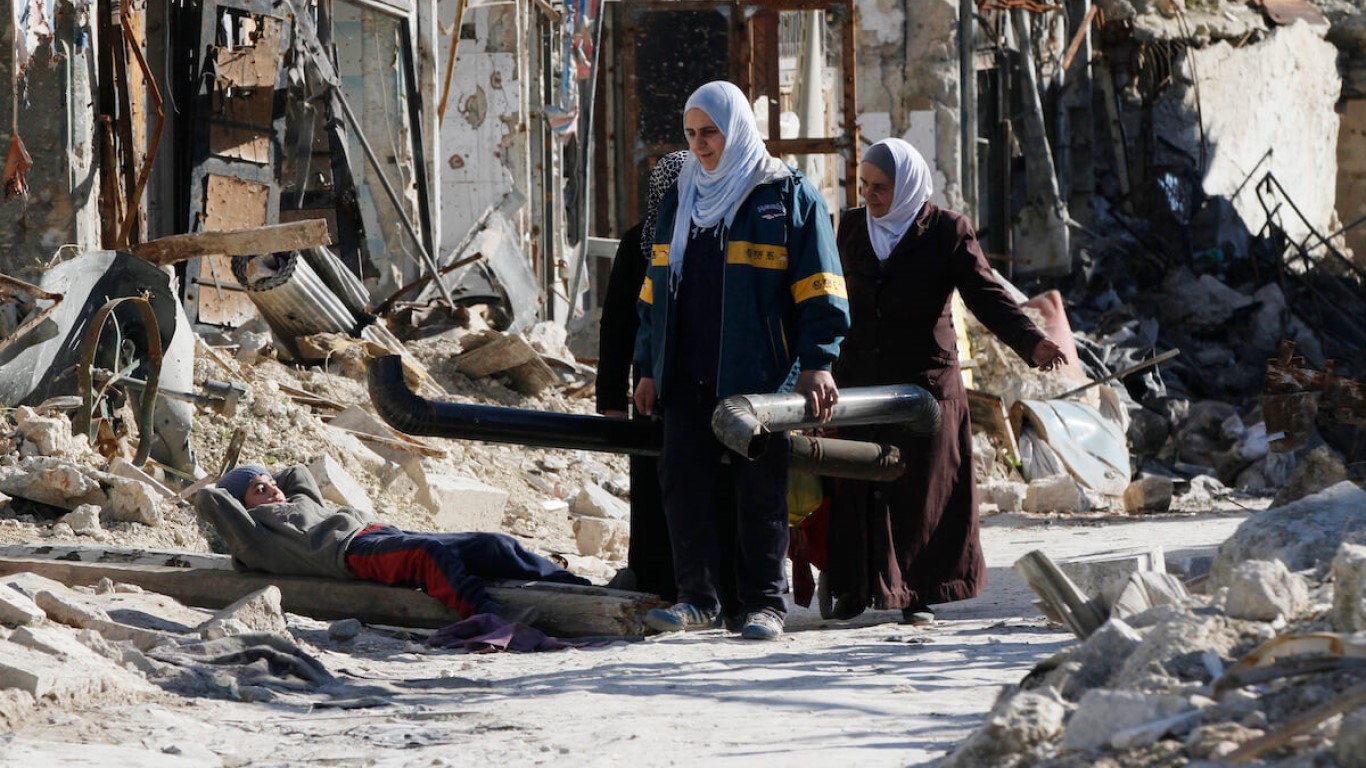
From Warfare to Peacebuilding: Employing Artificial Intelligence for Women, Peace and Security
Following the COVID-19 pandemic, digitization rapidly accelerated, which exacerbated a wide array of security risks, digitally facilitated harm and contemporary forms of warfare. Although cybersecurity concerns have been discussed in the context of national security for some time, they have yet to be systematically accounted for in the Women, Peace and Security (WPS) agenda. As a result of UN Women Regional Office for Asia and the Pacific’s efforts to close these knowledge gaps in 2022, stakeholders now have access to an entirely new body of knowledge products on cybersecurity implications for the implementation of the WPS agenda in Southeast Asia. Diverse audiences, including representatives from both government bodies, civil society and academia were reached by the findings from this new body of research through numerous presentations in international, regional and national fora, raising awareness of the importance of the topic and the availability of new resources relevant to the field of cybersecurity. By the end of 2022, a diverse set of at least 1,433 stakeholders, including government representatives, academia and civil society representatives, had been directly reached by information on the linkages between cybersecurity and the WPS agenda. Additionally, close to 5 million people have been reached indirectly by communications and advocacy efforts aiming to raise awareness of gendered risks and opportunities relating to technology and digital platforms.
Read more
Action Brief – From Warfare to Peace building: Employing Artificial Intelligence for Women, Peace and Security
Action Brief: Women, Peace & (Cyber) Security in Asia and the Pacific (English and Vietnamese)
UN Women Project Webpage: Women, Peace and Cybersecurity
Kenyan women lead peace efforts in longstanding conflicts
Across Kenya, local conflicts driven by diverse factors have one thing in common: they’re increasingly being mediated by women. From ethnic tensions to land disputes, some of these conflicts stretch back decades; remaining unresolved despite the lasting instability and violence they create among communities. So women are stepping up to end longstanding strife through local dialogues and outreach, approaches male-dominated leadership has not always been willing to take. But in order to build lasting peace, they need support from both their communities and the state—which some are receiving, and many are not. Read more >
In the words of Anastasia Perepylytsia: "Women are half of the population, whose opinions and needs must be taken into account."
Anastasia Perepylytsia, 44, is no stranger to displacement. In 2014, she had a stable job in finance and lived a normal life together with her husband and two children in Donetsk, eastern Ukraine. But when the Russian army invaded her hometown, she had to flee with her family to Zaporizhzhia, a city situated on the banks of the Dnieper River in the southeast. When the war began in 2022, she had to leave again, relocating to Novovolynsk in western Ukraine. At first, she struggled to find employment, information or psychological support—until she came across UN Women’s ‘Community Mobilization for Empowerment’ project. Now, she is using her experiences of displacement to help others in similar situations adapt.
Ampliando el acceso de las mujeres, la niñez y pueblos indígenas a la justicia
Desde mediados de 2015 se produjeron una serie de acontecimientos que sacudieron a la sociedad guatemalteca. De ese escenario surgieron, de manera genuina y espontánea, movimientos sociales de protesta contra la corrupción y ha crecido la demanda social de reformas estructurales pendientes desde la firma de los acuerdos, para establecer marcos legales no solo para la lucha contra la corrupción sino para un Estado de Derecho respetuoso de la democracia, la paz y garante de los derechos humanos. A pesar de los avances para generar reformas, quedan muchos desafíos en el fortalecimiento del acceso a la justicia para las mujeres, adolescentes, jóvenes, niñez y pueblos indígenas. Leer más >
How Syrian women navigate security risks to mediate local conflicts
For over a decade, Syria’s protracted conflict has taken countless lives, displaced millions in and outside the country and left much of its infrastructure in tatters. International mediation efforts to end the conflict have largely stalled, in part because the local dynamics that help fuel the crisis are often overlooked by formal mediators. This makes mediation efforts that seek to resolve inter- and intra-community conflict and address local concerns vital to advance formal peacemaking efforts led by national actors. Read more >

Southeast Asia: Artificial intelligence for peace
Following the COVID-19 pandemic, digitization rapidly accelerated, which exacerbated a wide array of security risks, digitally facilitated harm and contemporary forms of warfare. Although cybersecurity concerns have been discussed in the context of national security for some time, they have yet to be systematically accounted for in the Women, Peace and Security (WPS) agenda. As a result of UN Women Regional Office for Asia and the Pacific’s efforts to close these knowledge gaps in 2022, stakeholders now have access to an entirely new body of knowledge products on cybersecurity implications for the implementation of the WPS agenda in Southeast Asia. Diverse audiences, including representatives from both government bodies, civil society and academia were reached by the findings from this new body of research through numerous presentations in international, regional and national fora, raising awareness of the importance of the topic and the availability of new resources relevant to the field of cybersecurity. By the end of 2022, a diverse set of at least 1,433 stakeholders, including government representatives, academia and civil society representatives, had been directly reached by information on the linkages between cybersecurity and the WPS agenda. Additionally, close to 5 million people have been reached indirectly by communications and advocacy efforts aiming to raise awareness of gendered risks and opportunities relating to technology and digital platforms.
Read more
Action Brief – From Warfare to Peace building: Employing Artificial Intelligence for Women, Peace and Security
Action Brief: Women, Peace & (Cyber) Security in Asia and the Pacific (English and Vietnamese)
UN Women Project Webpage: Women, Peace and Cybersecurity

Kenya: Women lead peace efforts
Across Kenya, local conflicts driven by diverse factors have one thing in common: they’re increasingly being mediated by women. From ethnic tensions to land disputes, some of these conflicts stretch back decades; remaining unresolved despite the lasting instability and violence they create among communities. So women are stepping up to end longstanding strife through local dialogues and outreach, approaches male-dominated leadership has not always been willing to take. But in order to build lasting peace, they need support from both their communities and the state—which some are receiving, and many are not. Read more >

Ukraine: In the words of Anastasia Perepylytsia
Anastasia Perepylytsia, 44, is no stranger to displacement. In 2014, she had a stable job in finance and lived a normal life together with her husband and two children in Donetsk, eastern Ukraine. But when the Russian army invaded her hometown, she had to flee with her family to Zaporizhzhia, a city situated on the banks of the Dnieper River in the southeast. When the war began in 2022, she had to leave again, relocating to Novovolynsk in western Ukraine. At first, she struggled to find employment, information or psychological support—until she came across UN Women’s ‘Community Mobilization for Empowerment’ project. Now, she is using her experiences of displacement to help others in similar situations adapt.

Guatemala: Access to justice for indigenous peoples
Desde mediados de 2015 se produjeron una serie de acontecimientos que sacudieron a la sociedad guatemalteca. De ese escenario surgieron, de manera genuina y espontánea, movimientos sociales de protesta contra la corrupción y ha crecido la demanda social de reformas estructurales pendientes desde la firma de los acuerdos, para establecer marcos legales no solo para la lucha contra la corrupción sino para un Estado de Derecho respetuoso de la democracia, la paz y garante de los derechos humanos. A pesar de los avances para generar reformas, quedan muchos desafíos en el fortalecimiento del acceso a la justicia para las mujeres, adolescentes, jóvenes, niñez y pueblos indígenas. Leer más >

Syria: Navigating security risks
For over a decade, Syria’s protracted conflict has taken countless lives, displaced millions in and outside the country and left much of its infrastructure in tatters. International mediation efforts to end the conflict have largely stalled, in part because the local dynamics that help fuel the crisis are often overlooked by formal mediators. This makes mediation efforts that seek to resolve inter- and intra-community conflict and address local concerns vital to advance formal peacemaking efforts led by national actors. Read more >

